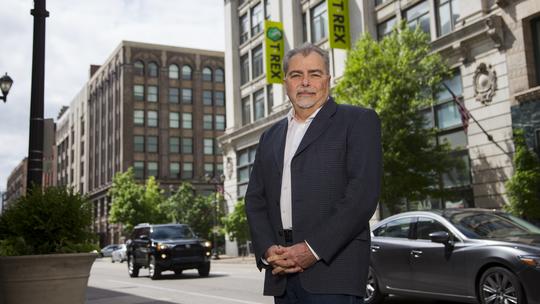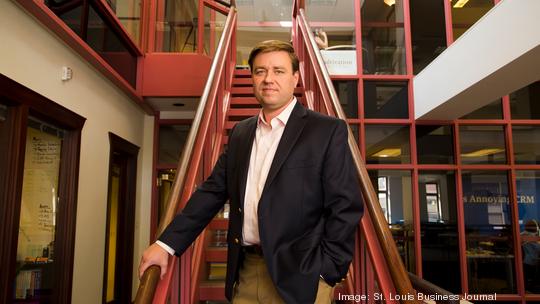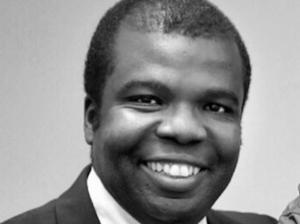
On April 15, 2012, newly launched St. Louis venture capital firm Cultivation Capital made its first investments.
It provided its first tranches of capital to a pair of software startups: Gainsight and LockerDome. The deals ended up being good picks for the nascent investor. Gainsight, which provides customer success software, became a so-called unicorn, being acquired in 2020 for $1.1 billion. LockerDome, an advertising technology firm that recently rebranded as Decide, has been a mainstay of St. Louis' technology and startup sectors. In recent years, it has rapidly expanded, employing a team of 80 and having revenue more than $30 million in 2021.
With the success of Gainsight and Decide, Cultivation Capital co-founders Brian Matthews and Cliff Holekamp joke “maybe we should have quit” after those initial deals. Instead, Cultivation Capital has spent the past decade becoming St. Louis’ most prolific venture capital firm, amassing an investment portfolio of more than 150 startups. With an initial focus on closing a funding gap for software firms in St. Louis, Cultivation Capital has expanded its investment thesis since its founding, launching into new industries and geographies.
A decade into its operations, Cultivation Capital is confident it has helped advance St. Louis’ startup economy. But it isn’t resting on its laurels. That’s because Matthews says there’s key work ahead.
“It takes 10 to 20 years to really build these ecosystems,” Matthews said. “I think this 10-year mark is really important. It really is just the beginning. It’s the halfway point … we’ve seen a lot of success in these first 10 years of software tech, but we’re really early in the game here.”
Establishing a strategy
In launching Cultivation Capital in 2012, the venture firm’s founders sought to fill what they believed was a gaping hole in St. Louis’ startup sector, particularly for early stage software companies. While there were numerous local competitions in which startups could win $50,000, Holekamp said startups often struggled to find needed follow-on capital in St. Louis to advance their companies.
“The idea was, if St. Louis and even the greater Midwest and the rest of the country was ever going to even be participating in the modern economy, we had to have the capital to develop our own startups,” he said.

In addition to Holekamp and Matthews, founding general partners of Cultivation Capital included Rick Holton, Jim McKelvey and Peter Esparrago. Its first principal was Kyle Welborn.
Specifically, Cultivation Capital wanted to help create a funding pipeline and support infrastructure locally for early stage companies in this software field, seeking to create a model that existed here in other sectors, particularly biosciences with the launch of the Cortex innovation district and innovation hub BioSTL.
“We really needed a focal point for software tech like we had for bio,” Matthews said.
The venture firm launched around the same time as several other key organizations aimed at boosting the region’s startup economy, including accelerator and investor Capital Innovators, downtown entrepreneurship center T-REX (home to Cultivation Capital’s headquarters) and nonprofit startup funder Arch Grants.
Since its launch, Cultivation Capital has typically invested in seed to Series A funding rounds, providing initial capital allocations of between $100,000 to $3.5 million on startups. That investment strategy has remained the same over the past decade while the types of companies Cultivation Capital backs have expanded. It has branched into areas such as life sciences, agriculture and food technology. Most recently, Cultivation Capital launched a fund to invest in geospatial technology companies, a move that comes as St. Louis civic leaders have sought to boost the region’s geospatial sector.
“We’ve always aligned our investing activities with economic development strategies,” Holekamp said.
Through its operations, Cultivation Capital has created its agriculture investment arm, The Yield Lab, and St. Louis venture capital firm SixThirty, which has become an independent entity. Additionally, Nashville-based financial technology-focused venture firm Fintop Capital, which has an office in St. Louis, spun out of Cultivation Capital.
A growing footprint
In recent years, several local companies that counted Cultivation Capital as an investor have completed high-profile exits. They include agtech firm Benson Hill (NYSE: BHIL), digital health company CareSignal, biopharmaceutical firm Galera Therapeutics (Nasdaq: GRTX), and software firms Hatchbuck (now Benchmark Email) and TopOpps.
At the same time, the venture firm has drastically expanded its footprint beyond St. Louis, with portfolio companies today headquartered in 25 U.S. states and Washington, D.C.. In building out its footprint, Holekamp said, Cultivation Capital has employed an expansion strategy that would be similar to that of a startup it backs.
“They start with an initial market where they know they can make a difference and create that platform and continue to build,” he said.
And like its own portfolio companies, Matthews said Cultivation Capital’s decision to branch out beyond St. Louis is about ensuring its own financial success, scouting the best deals for the firm and its limited partners.
“If you stay 100% St. Louis, you’re probably not going to get the returns you are going to need to stay alive,” he said.
The growing national footprint ties back to Cultivation Capital’s original mission to boost St. Louis, Matthews said. He says it has created a national reputation for the firm, which helps bolster St. Louis as a place where startups need to do business.
As it expanded its footprint, Cultivation Capital has created a mechanism to keep focused on St. Louis. In 2018, it launched its Spirit of St. Louis Fund, which provides seed capital to Midwest startups, with local investment manager Twain Financial Partners. Cultivation Capital launched the fund as a way to ensure its ongoing commitment to homegrown startups. The Spirit of St. Louis Fund has invested in several of St. Louis' most promising startups, including apparel brand Summersalt, software firm Balto and Clever Real Estate.
Moving forward, Cultivation Capital expects further expansion. Matthews suggested it could involve investments into new industries and potentially a fund for later-stage deals.
“I think we’re at the point where we could do that,” he said.











